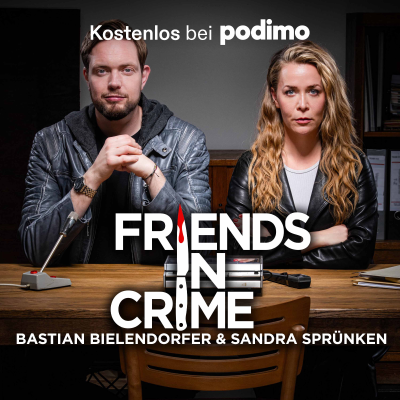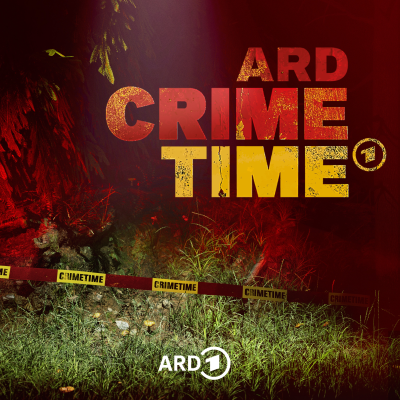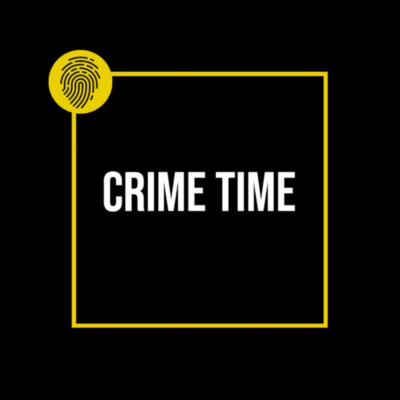
Renovaré Podcast with Nathan Foster
Podcast von Renovaré
Nimm diesen Podcast mit

Mehr als 1 Million Hörer*innen
Du wirst Podimo lieben und damit bist du nicht allein
Mit 4,7 Sternen im App Store bewertet
Alle Folgen
213 FolgenLuci Shaw's zest for life is contagious. At 92, the poet and writer is still discovering and creating. She talks with Nathan Foster about her new book, The Generosity, her creative process, and her close friendship with Madeleine L'Engle.
James Catford, board chair at Renovaré and SPCK (UK's largest Christian publisher), talks to Nathan about a wonderfully practical book with an austere title: William Law's A Serious Call to a Devout and Holy Life. James is facilitating the Renovaré Book Club [https://renovare.org/bookclub] starting in April 2021. In the episode, you'll hear Richard Foster and Dallas Willard introducing the book at the 1999 Renovaré International Conference. [10:32] How has William Law’s book been helpful to you? I’m interested in anyone trying to relate the two worlds of church and the market square together. There are those out there doing a regular job with a Jesus orientation – work done in secular job either to convert people or raise income to give to the church, but I think it’s a bit more than that. William Law believed that and wanted Jesus to be Lord of everything. [12:45] How did the intersection of work and spiritual life play out for you? Working in a publishing company in London, young, pursuing a career, publishing some interesting people - leaders of our country like Margaret Thatcher and Tony Blair. It was going really well. But my spiritual world was over here and my working life was way over here. And I didn’t know how to bring the two together. Increasingly my spiritual journey was not keeping up with the complexities and challenges of a very competitive industry. Can God really handle the tough commercial world? [14:59] Did you find integration? I found Divine Conspiracy. And your father said to me once, “As a child I was taught that you keep these two worlds as far apart as possible, the God world and the job world, and that really spiritual people keep them as far apart as possible. You escape the world to be with God.” Then he took his two hands and brought them together and intertwined his fingers. “Now I realize that the really spiritual people are the ones who can bring the two together, who can bring God into the spaces that are supposedly ‘out there.’” I was 36 years old, and I remember thinking, “This is the life I want to pursue, working out what that means.” [17:34] And how did William Law’s work contribute to that? This book gives examples of people, not just an argument putting forward ideas. He’s giving insight into people he lived with or knew, and that’s rather charming. I like the pragmatism of the book. He’s talking about people in jobs, doing ordinary things. He says that we need to temper the spiritual disciplines according to your state of being, bearing in mind that your situation will change, doing different things at different stages. So be easy on yourself. He’s much more generous toward us than we are to ourselves. The spiritual classics are much more forgiving and understanding – do what you can, and don’t sweat what you are not able to do. [20:53] In a culture that wouldn’t be drawn to the title, ironically there is grace in this. Help people that are beginning this book. You’ve said something about approaching these kinds of books with a small spoon. The older the book, the slower the speed. [22:16] What are some of the considerations, culturally, that people should come at this book with? He is very concerned about people pretending to be spiritual. It’s an English book; he’s from a small English village. Everybody knows everybody else, and it’s quite easy to present that you’re more spiritual than you actually are – you present well in church. He was interested in who you are not just on Sunday, but Tuesday, Thursday, at work. [24:40] He presents the idea that everything is sacred, where does beauty come in? In the wider world, our culture is good at spotting beauty. We should join the culture in the conversation about beauty; it’s one of the best ways to start a spiritual discussion, whether around art, film, video, furniture, architecture, logo design. It’s one of the transcendentals that allows us to talk to people - beauty, truth and goodness. [26:36] How does Law’s view of holiness lend itself to engaging with beauty, or does it? It does if you realize the beauty of holiness, like we hear in the hymn Worship the Lord in the Beauty of Holiness. If you meet a holy person in character terms, there is a beauty that draws us in. We often talk about holiness in relation to God, but God as the other, removed, further away from us. But the other way to talk about it is as something that works well. Holy people are able to do what needs to be done when it needs to be done – able to respond in the right way at the right time. And there is a beauty, simplicity, and holiness about it. [29:15] In a sense this is a work that helps us move closer into being people who function well. Unencumbered is the way I would put it –all those things that interrupt us becoming the best person we can be; is the person that is free from all the things that interrupt us – things that can happen at work – all the pride, ego, grasping, greed, and looking good things. But there’s not that interior beauty. That is what this book is going to help us with in practical terms. Resources Mentioned * A Serious Call to a Devout and Holy Life [https://www.wjkbooks.com/Products/0664248330/a-serious-call-to-a-devout-and-holy-life.aspx] (this version being used for the Renovaré Book Club) * Song: O Worship the Lord in the Beauty of Holiness [https://www.youtube.com/watch?v=LBEmXFkwcOE]
Writer, teacher, and pastor Keith Matthews had the unique opportunity to teach beside Dallas Willard for 18 years. Pastors and students who had read Dallas would often come and say: "We know his writing is special, but we're here to find out if he's for real." In this episode, Nathan and Keith discuss Dallas Willard's thoughts on character, his legacy, and the work being carried on through Dallas Willard Ministries, the Dallas Willard School of Kingdom Living, and the newly formed Dallas Willard Publishing. [5:20] Tell me the story of when you first met Dallas. He teared up when he read scripture. I felt like I was entering a candy store, he was the owner, and he was dispensing the candy out – candy he’d already tasted. Great teaching of ideas and thoughts of transformation, but that it was out of his experience that he taught from. He was the real deal. [9:05] What did you learn from him? Character as primary. Character is different from giftedness. Dallas would say that “gifts will only take you as far as your character will let you go”. One of the defining characteristics of Jesus life was that he was unhurried. John Wesley said that too, “I’m always in haste, but I’m never in a hurry.” [15:54] What do you miss most about him? I miss being able to call him up and ask what he thinks about what’s going on in the world, or a theological question. He was a brilliant thinker on a wide range of topics. I don’t think there was ever a question that he had not read something about the topic that he could impart. And I miss his presence. [17:05] Thinking of the line when Jesus told his disciples that it was better for him to go, has there been anything good about his passing? There is manifold goodness because of the seeds that he sowed. He was very generous to everyone he taught. Maybe now it’s a reset time, a time to ask what we can do differently, to ask what our current culture needs differently. [19:30] Many people have picked up and are working with his work. Do you see holes or things that are lacking? Evangelicalism has faded considerably – a message still built around conversion and atonement, and still don’t understand fully the idea of spiritual formation and our role in becoming holy. The culture has shifted. [22:00] What does that look like for you living daily for Christ (on a personal level) I try to practice developing a life around formational prayer, prayer that is engaging with the truth and vision of who God is in ancient prayers. [24:20] Dallas Willard Publications has recently been formed to try to preserve, protect, and proclaim the legacy of Dallas. Favorite Dallas Willard book: Divine Conspiracy Great Dallas book to start with: The Great Omission [29:17] Dallas Willard School of Kingdom Living We are beginning our first cohort of 30 people in a couple of months and is for those who want to read deeper in Dallas and have a community to do it in. Scripture References: Being a fragrant aroma: 1 Corinthians 2:15 John Wesley quote: “Though I am always in haste, I am never in a hurry; because I never undertake any more work than I can go through with perfect calmness of spirit.” Books * The Divine Conspiracy [https://renovare.org/books/divine-conspiracy#entry:158@1:url] * The Great Omission [https://renovare.org/books/great-omission#entry:519@1:url] * Renewing the Christian Mind [https://smile.amazon.com/dp/0062296132/?tag=renovare88-20] To learn more about Dallas Willard and the ministries mentioned during the podcast visit: * Dallas Willard Ministries [https://dwillard.org/] * School of Kingdom Living [https://dwillard.org/the-school-of-kingdom-living]
"Let's all get maladjusted to a world gone mad," sings Carolyn Arends. In this episode, she shares two songs from her new album—"Maladjusted" and "To Cry for You"—and the stories behind them.
In this episode, Nathan asks candid questions about race: What's your experience of being black in America? What do you want white people to know? What is the Church's role? Tina Dyer, a racial equity diversity and inclusion strategist and now Renovaré Board member, answers with honesty and humility.























